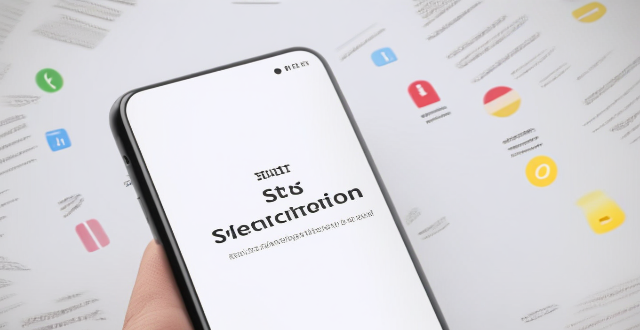Spyware or tracking apps can pose a significant threat to your privacy and security, but there are steps you can take to identify, remove, and prevent them. Look for signs like unusual battery drain, increased data usage, strange device behavior, unrecognized apps, app crashes, slow performance, and more. To remove spyware, install anti-spyware software, perform a factory reset, uninstall suspicious apps, update your OS, use built-in security features, change passwords, be cautious with permissions, avoid unsecured Wi-Fi networks, review installed apps regularly, and educate yourself about spyware. For prevention, download apps from official stores, read reviews, check permissions, use two-factor authentication, monitor accounts, secure your lock screen, be wary of phishing attempts, limit administrative privileges, keep personal information private, and educate your family about the risks.

1. Identifying Spyware or Tracking Apps
- Unusual Battery Drain: Spyware or tracking apps tend to run in the background, constantly sending data to remote servers. This can lead to a significant increase in battery consumption.
- Increased Data Usage: These apps often send and receive data without the user's knowledge. Check your phone's data usage; an unusual spike could indicate spyware activity.
- Strange Behavior of Your Device: If your phone turns on by itself, apps launch unexpectedly, or there is a sudden increase in pop-up ads, it could be a sign of spyware.
- Unrecognized Apps: Look for apps you don't remember installing or that seem suspicious. Spyware often hides within seemingly legitimate apps.
- Crashing Apps: Spyware can cause other apps to crash frequently. If this happens often, it could be a sign of spyware.
- Unexplained Slowness: If your phone is running slower than usual, it could be because spyware is using up your phone's resources.
- Unusual Noise During Calls: If you hear strange noises or echoes during calls, it could be a sign that your calls are being monitored.
- Hot Phone: Spyware can cause your phone to overheat as it runs resource-intensive processes in the background.
- Unknown Numbers in Your Logs: If you find calls or texts from numbers you don't recognize, it could be a sign that someone is trying to communicate with the spyware on your device.
- Decreased Performance: If your phone's performance has decreased significantly, it could be because spyware is consuming your phone's resources.
2. Removing Spyware or Tracking Apps
- Install Anti-Spyware Software: Use reputable anti-spyware software to scan your device for any potential threats.
- Factory Reset: If you suspect spyware, back up your data and perform a factory reset. This will delete all data from your phone, including any spyware.
- Uninstall Suspicious Apps: Remove any apps that you don't recognize or that you didn't intentionally install.
- Update Your Operating System: Keep your operating system updated to ensure you have the latest security patches.
- Use Built-in Security Features: Many modern smartphones come with built-in security features that can help detect and remove spyware.
- Change Your Passwords: Change your passwords regularly and avoid using the same password across multiple accounts.
- Be Cautious with Permissions: Only grant permissions to apps that you trust and that need them to function properly.
- Avoid Unsecured Wi-Fi Networks: Spyware can be installed remotely via unsecured Wi-Fi networks. Avoid connecting to public Wi-Fi unless you use a trusted VPN.
- Regularly Review Installed Apps: Regularly review the list of installed apps and uninstall anything that looks suspicious or unused.
- Educate Yourself: Stay informed about the latest types of spyware and how they operate. This can help you identify potential threats more easily.
3. Prevention Tips
- Download Apps from Official Stores: Only download apps from official app stores like Google Play or Apple's App Store.
- Read App Reviews: Read reviews before downloading an app to see if other users have reported issues.
- Check App Permissions: Before installing an app, check the permissions it requests. If an app requests access to features it doesn't need, don't install it.
- Use Two-Factor Authentication: Enable two-factor authentication on your important accounts for an extra layer of security.
- Monitor Your Accounts: Regularly monitor your accounts for any unusual activity that could indicate spyware.
- Secure Your Lock Screen: Use a strong password or biometric lock on your phone to prevent unauthorized access.
- Be Wary of Phishing Attempts: Don't click on suspicious links or download attachments from unknown sources, as they can contain spyware.
- Limit Administrative Privileges: Avoid granting administrative privileges to apps unless absolutely necessary, as this can give spyware more control over your device.
- Keep Personal Information Private: Be cautious about sharing personal information online, as it can be used to target you with spyware.
- Educate Your Family: Teach your family about the risks of spyware and how to avoid it, especially if they use your devices.
By following these steps, you can effectively identify and remove spyware or tracking apps from your phone, as well as take preventive measures to protect your device and personal information from future threats.